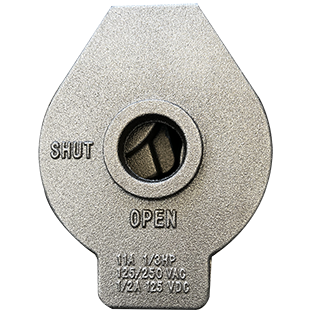- Afrikaans
- Albanian
- Amharic
- Arabic
- Armenian
- Azerbaijani
- Basque
- Belarusian
- Bengali
- Bosnian
- Bulgarian
- Catalan
- Cebuano
- China
- China (Taiwan)
- Corsican
- Croatian
- Czech
- Danish
- Dutch
- English
- Esperanto
- Estonian
- Finnish
- French
- Frisian
- Galician
- Georgian
- German
- Greek
- Gujarati
- Haitian Creole
- hausa
- hawaiian
- Hebrew
- Hindi
- Miao
- Hungarian
- Icelandic
- igbo
- Indonesian
- irish
- Italian
- Japanese
- Javanese
- Kannada
- kazakh
- Khmer
- Rwandese
- Korean
- Kurdish
- Kyrgyz
- Lao
- Latin
- Latvian
- Lithuanian
- Luxembourgish
- Macedonian
- Malgashi
- Malay
- Malayalam
- Maltese
- Maori
- Marathi
- Mongolian
- Myanmar
- Nepali
- Norwegian
- Norwegian
- Occitan
- Pashto
- Persian
- Polish
- Portuguese
- Punjabi
- Romanian
- Russian
- Samoan
- Scottish Gaelic
- Serbian
- Sesotho
- Shona
- Sindhi
- Sinhala
- Slovak
- Slovenian
- Somali
- Spanish
- Sundanese
- Swahili
- Swedish
- Tagalog
- Tajik
- Tamil
- Tatar
- Telugu
- Thai
- Turkish
- Turkmen
- Ukrainian
- Urdu
- Uighur
- Uzbek
- Vietnamese
- Welsh
- Bantu
- Yiddish
- Yoruba
- Zulu
Aug . 10, 2024 11:25 Back to list
Understanding Fuel Oil Boiler Efficiency and Its Impact on Energy Consumption and Performance
Understanding Fuel Oil Boiler Efficiency
Fuel oil boilers are vital components in heating systems, particularly in industries and large buildings where substantial heat is required. The efficiency of these boilers is a critical factor that not only impacts operating costs but also has significant environmental implications. In this article, we will explore the concept of boiler efficiency, the factors that influence it, and ways to improve it for better performance and sustainability.
What is Boiler Efficiency?
Boiler efficiency is defined as the ratio of useful energy output from the boiler to the energy input from the fuel. This is often expressed as a percentage. A higher efficiency rating indicates that a greater percentage of the fuel is being converted into usable heat, while a lower rating signifies energy losses and higher fuel consumption. Typical efficiencies for modern fuel oil boilers can range from 80% to 95%, depending on the technology and design employed.
Factors Affecting Boiler Efficiency
Several factors can affect the efficiency of a fuel oil boiler
1. Combustion Efficiency This refers to how effectively the fuel is burned. Proper air-to-fuel ratios are crucial; too much air can cool the flame and carry away heat, while too little can lead to incomplete combustion and increased emissions.
2. Heat Transfer The materials and design of the boiler’s heat exchanger significantly impact how well heat is transferred from the combustion gases to the water or steam. Fouling or scaling on heat transfer surfaces can reduce efficiency by creating thermal barriers.
3. Insulation The insulation quality of the boiler and its associated piping plays an essential role in minimizing heat loss. Poor insulation can lead to significant wasted energy, reducing overall efficiency.
4. Operating Temperature The temperature at which the boiler operates can also influence efficiency. Lowering the return water temperature in a condensing boiler, for example, can enhance heat recovery and improve overall efficiency.
fuel oil boiler efficiency

5. Maintenance Regular maintenance is crucial for maintaining optimal performance. Neglect can result in component wear, fouling, and malfunctions that reduce efficiency. Routine checks of burners, flue gas paths, and controls can ensure peak operation.
Improving Boiler Efficiency
Enhancing the efficiency of fuel oil boilers can lead to cost savings and reduced environmental impact. Here are some actionable strategies
1. Regular Maintenance Implement a planned maintenance schedule to inspect and clean the boiler and its components. This helps identify issues early and maintains operation at peak efficiency.
2. Upgrade Controls Installing advanced control systems can help optimize the combustion process and improve responsiveness to load variations, further enhancing efficiency.
3. Insulation Improvements Assess and upgrade insulation for both the boiler and associated piping. This can minimize heat loss and improve system performance.
4. Invest in New Technology Consider replacing older boilers with newer, more efficient models designed to meet or exceed current efficiency standards. Modern boilers often come equipped with advanced features that improve combustion and thermal efficiency.
5. Fuel Quality Utilize high-quality fuel oil that meets required specifications. Poor-quality fuel can lead to incomplete combustion and higher emissions, thus reducing efficiency.
Conclusion
In a world increasingly focused on sustainability and energy efficiency, understanding and improving fuel oil boiler efficiency is paramount. Not only does it provide substantial cost savings for operators, but it also plays a crucial role in reducing greenhouse gas emissions from combustion processes. By focusing on the factors that affect efficiency and implementing best practices, industries can ensure their heating systems operate efficiently and responsibly. It’s time to prioritize boiler efficiency—both for economic reasons and for the environment.
-
Premium Cast Iron Water Main Pipe: Durable, Corrosion-Resistant
NewsAug.03,2025
-
Durable Cast Iron Water Mains | AI-Optimized Systems
NewsAug.02,2025
-
High-Efficiency Propane Boiler for Baseboard Heat | Save Energy
NewsAug.01,2025
-
Premium Source Suppliers for Various Gray Iron Castings
NewsJul.31,2025
-
Durable Cast Iron Water Main Pipes | Long-Lasting
NewsJul.31,2025
-
High-Quality Cast Iron Water Main Pipe for Durable Infrastructure
NewsJul.30,2025


